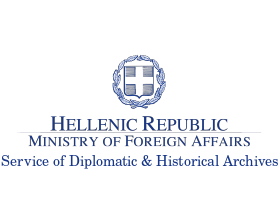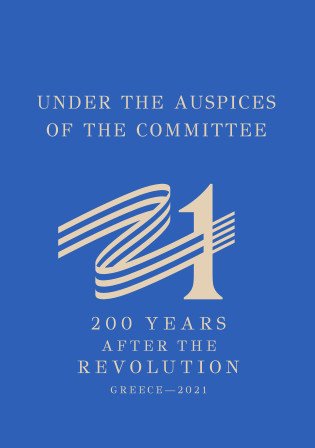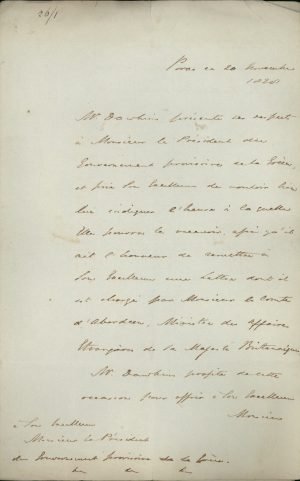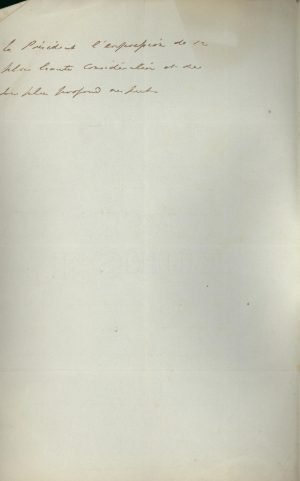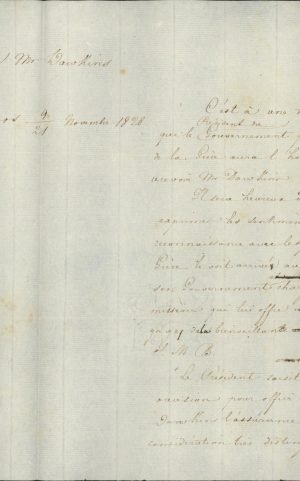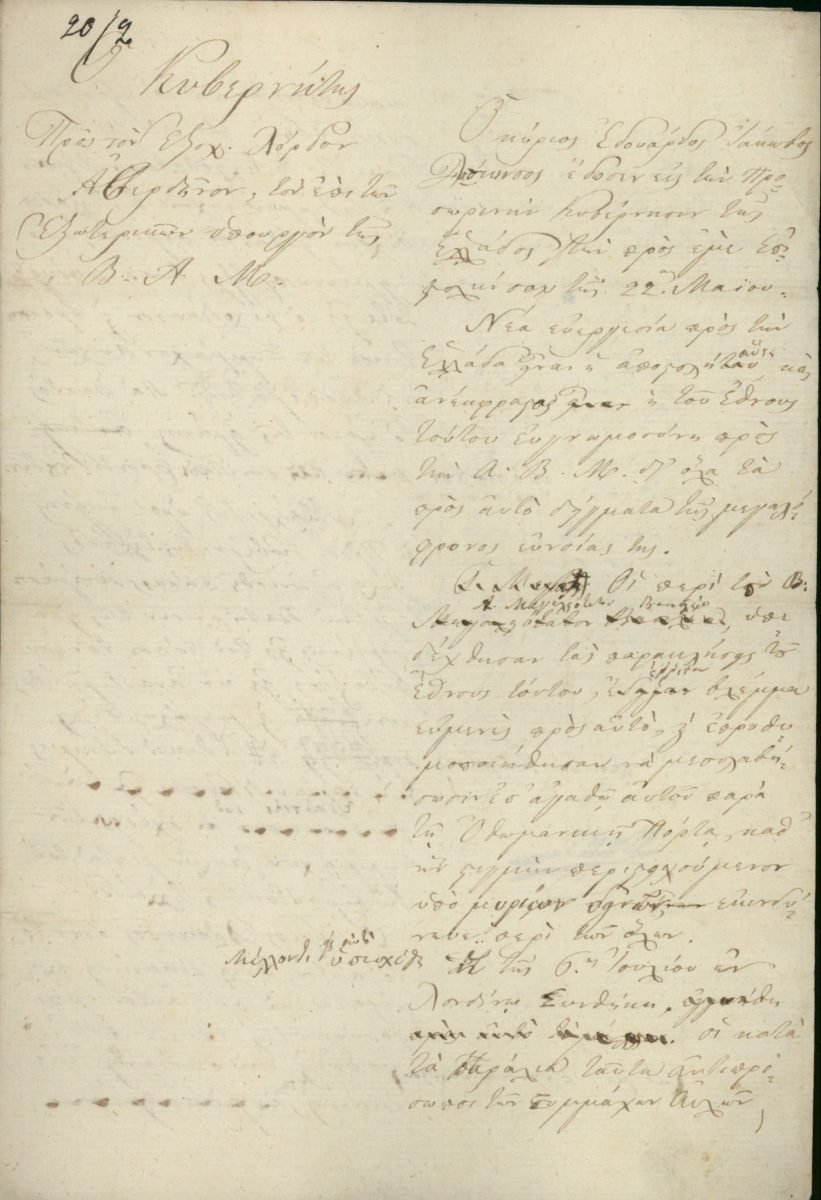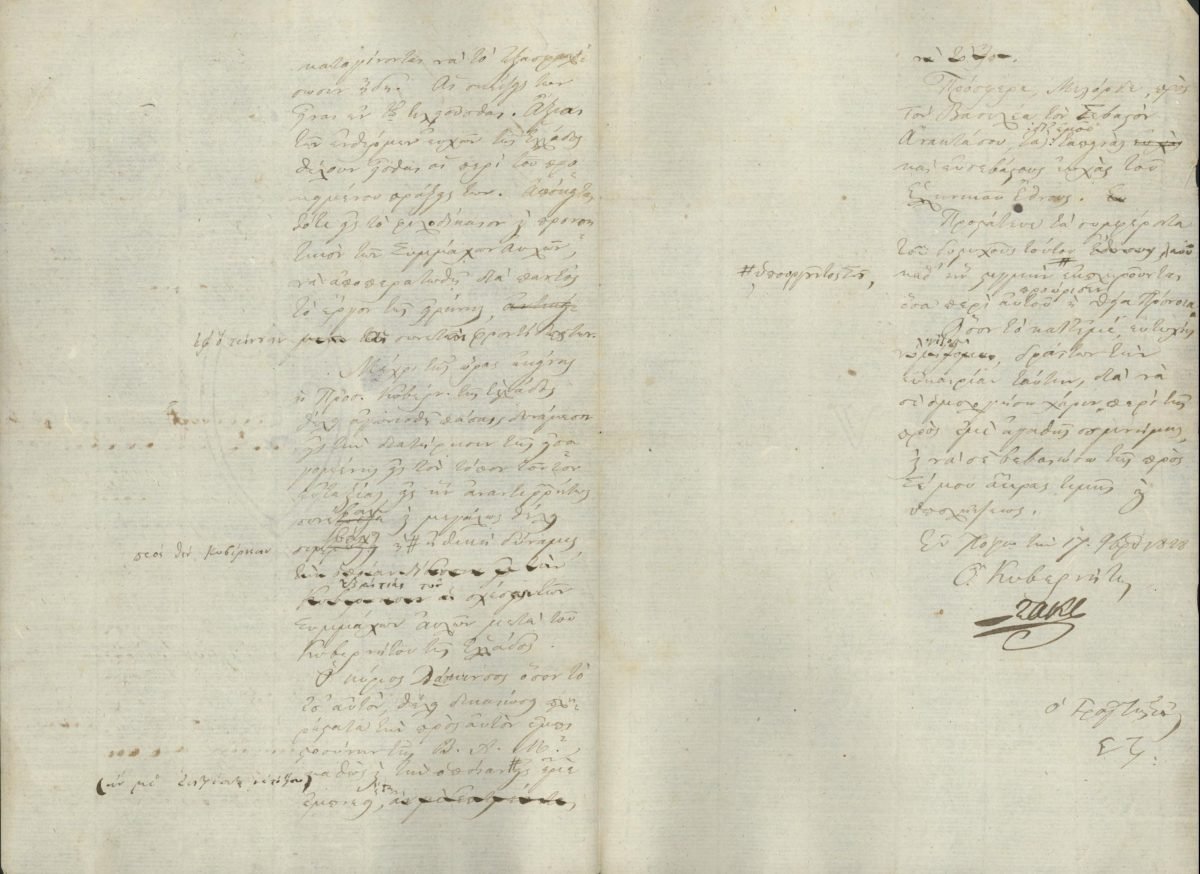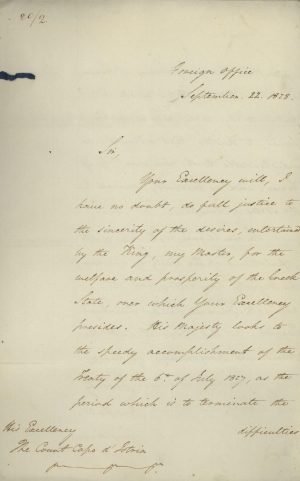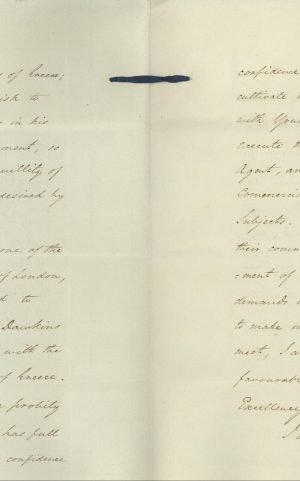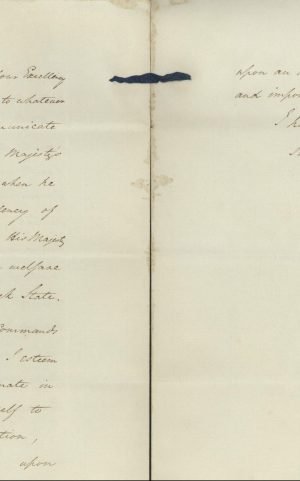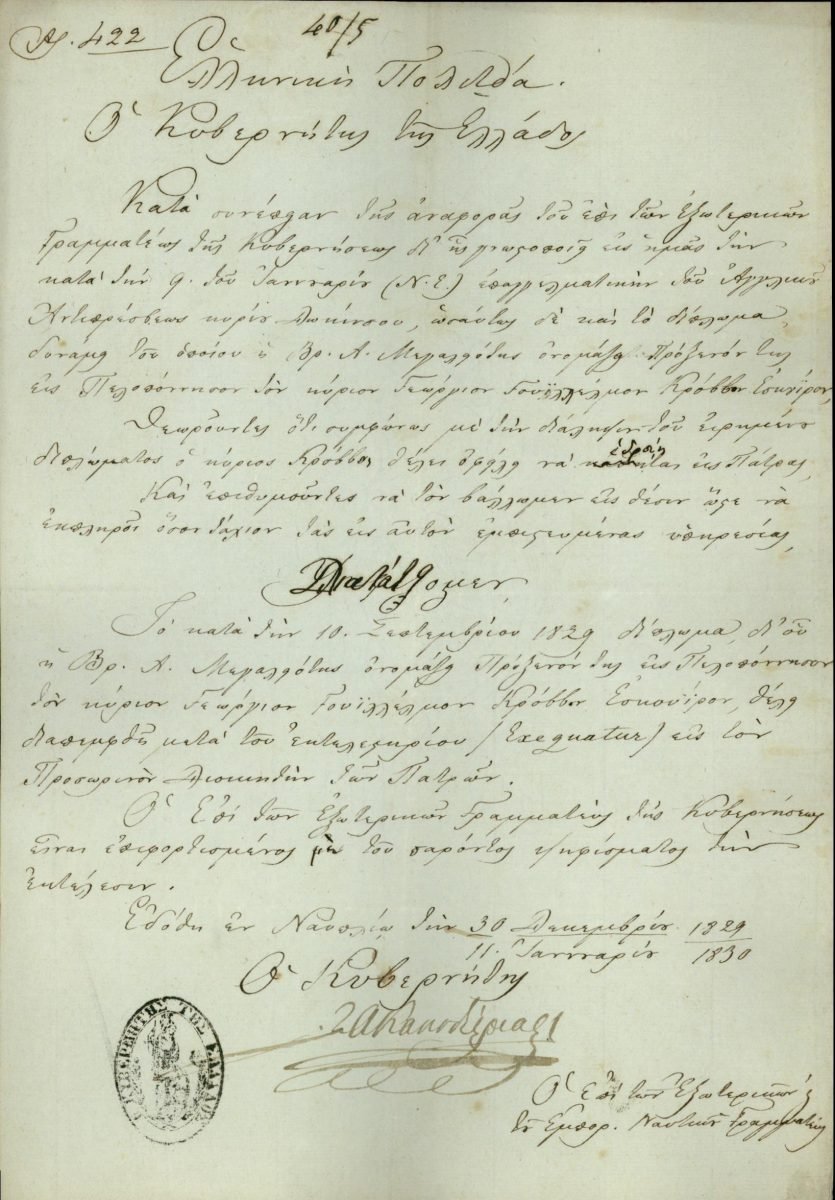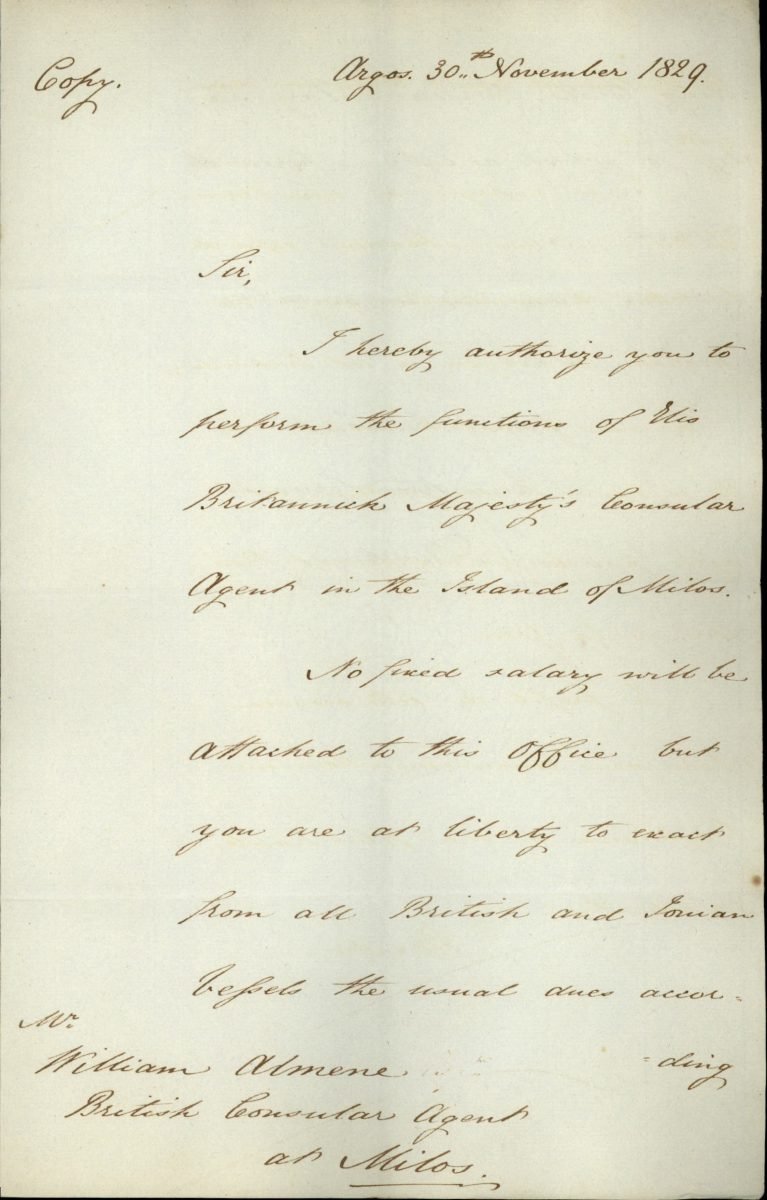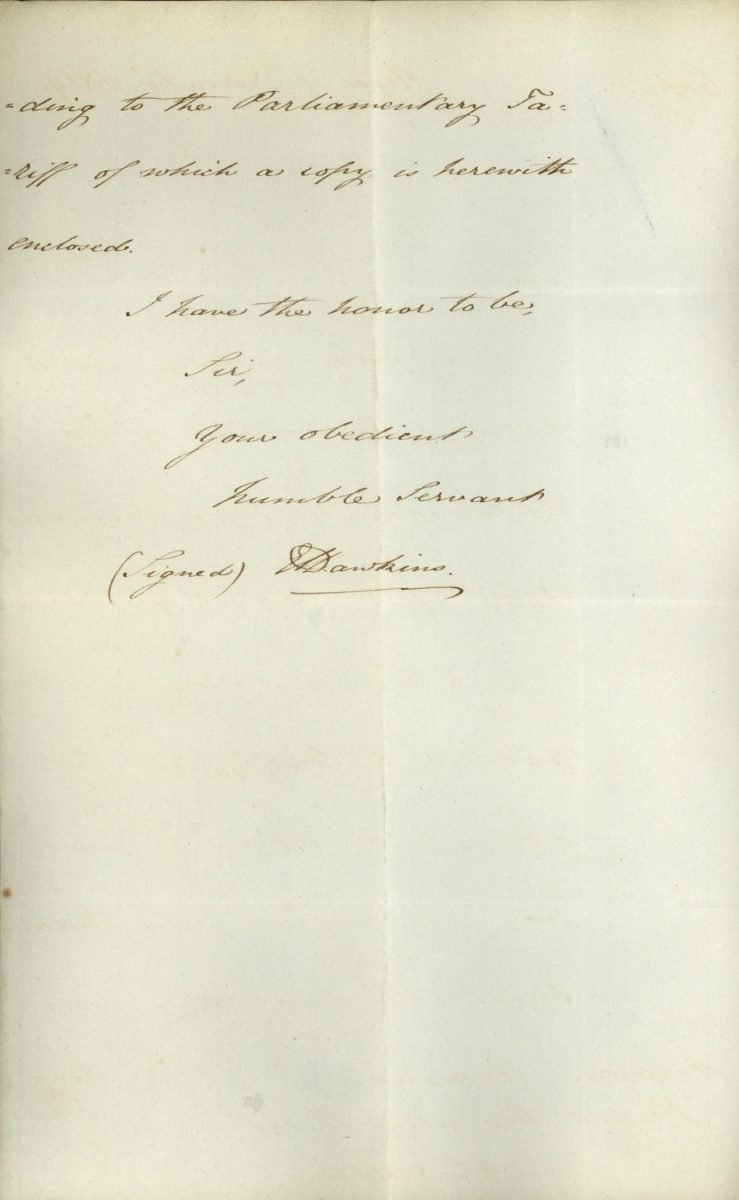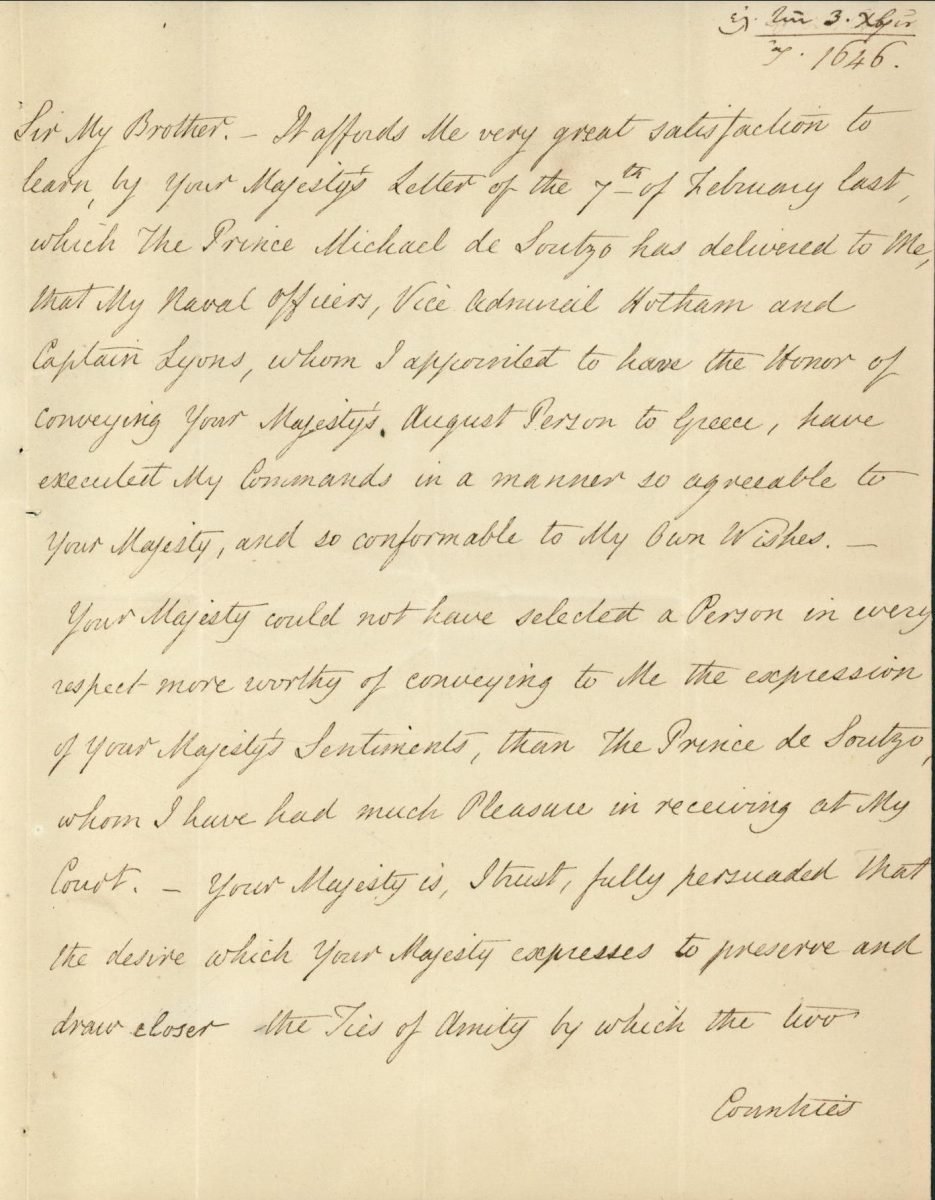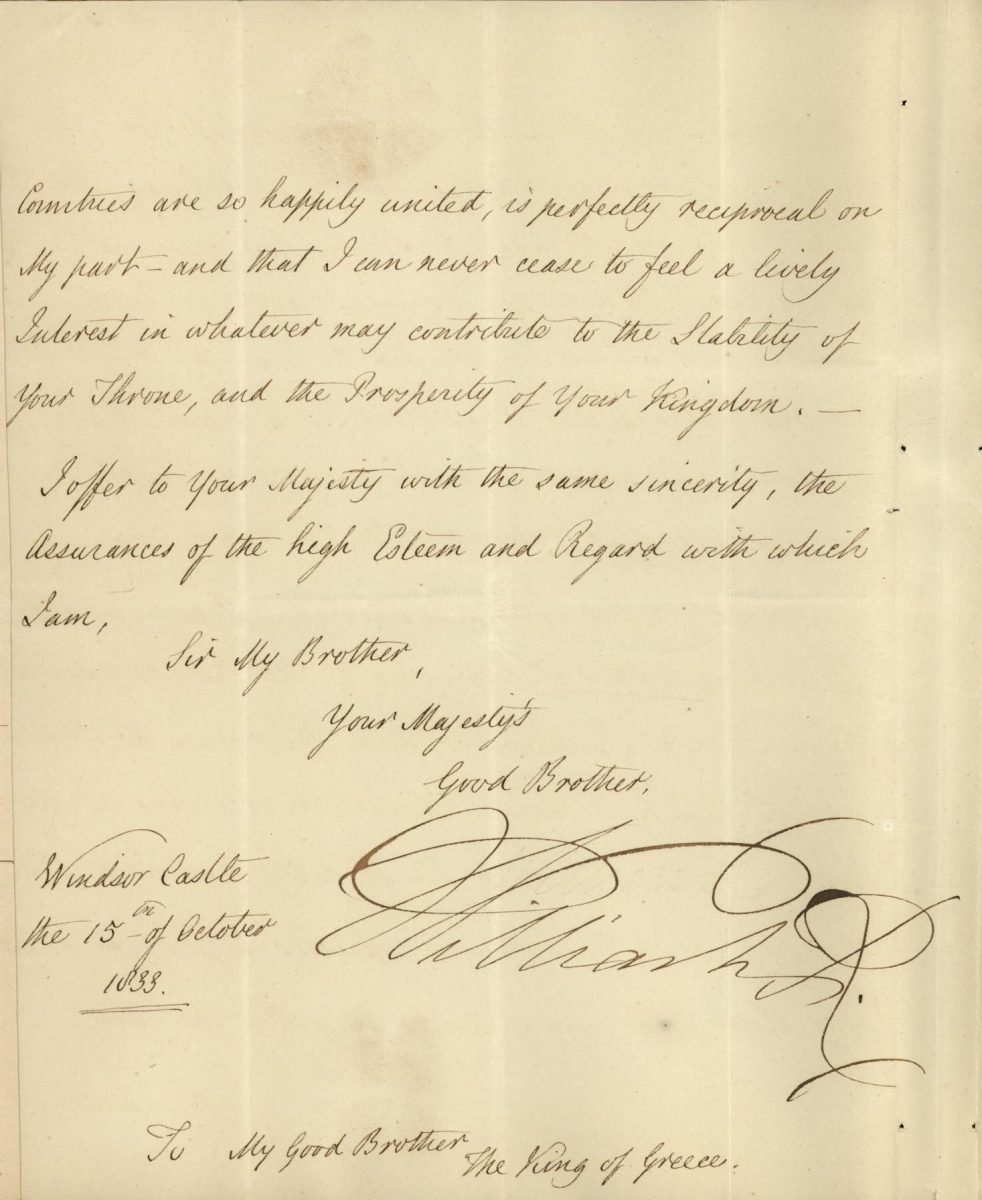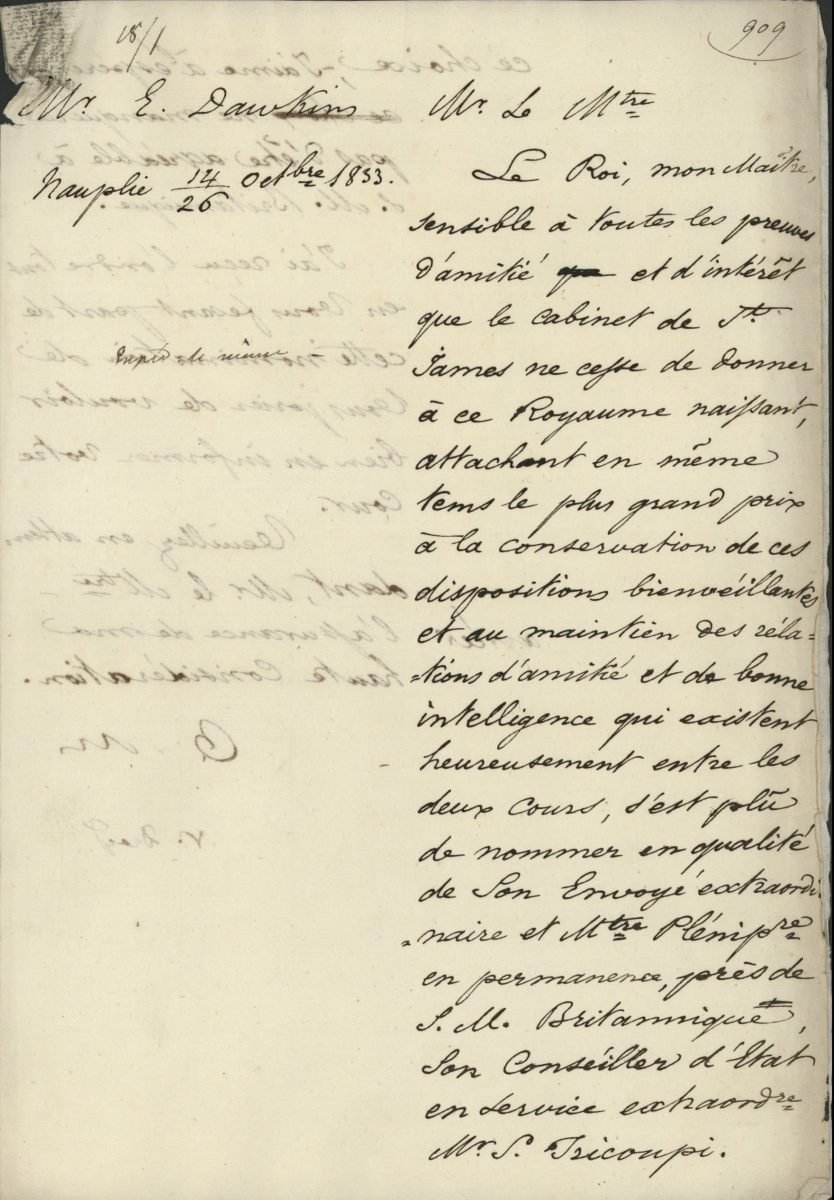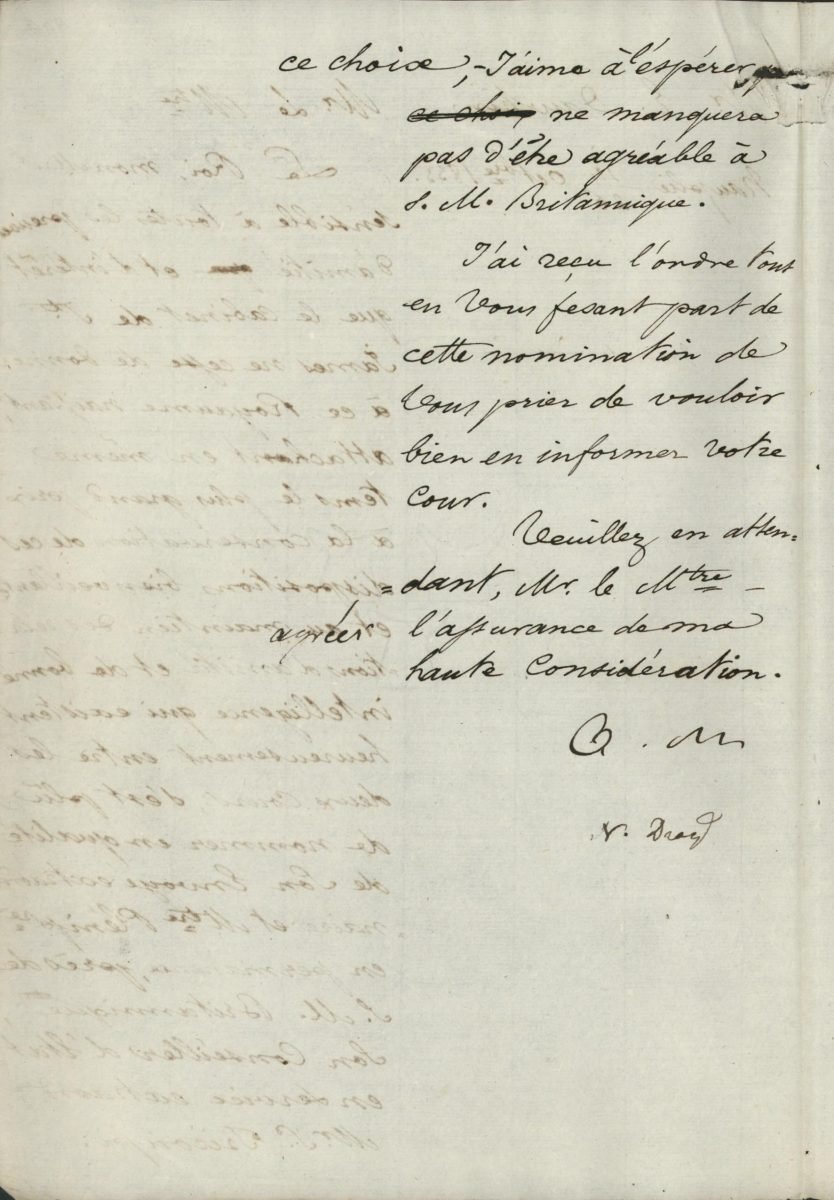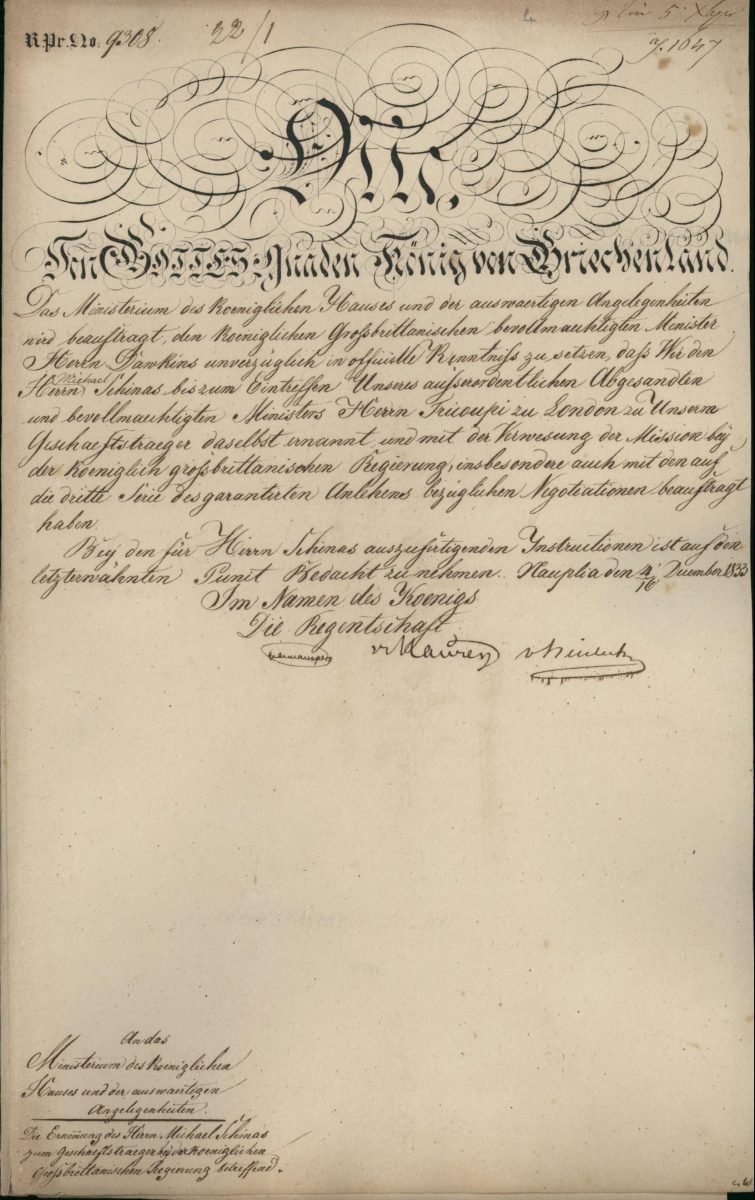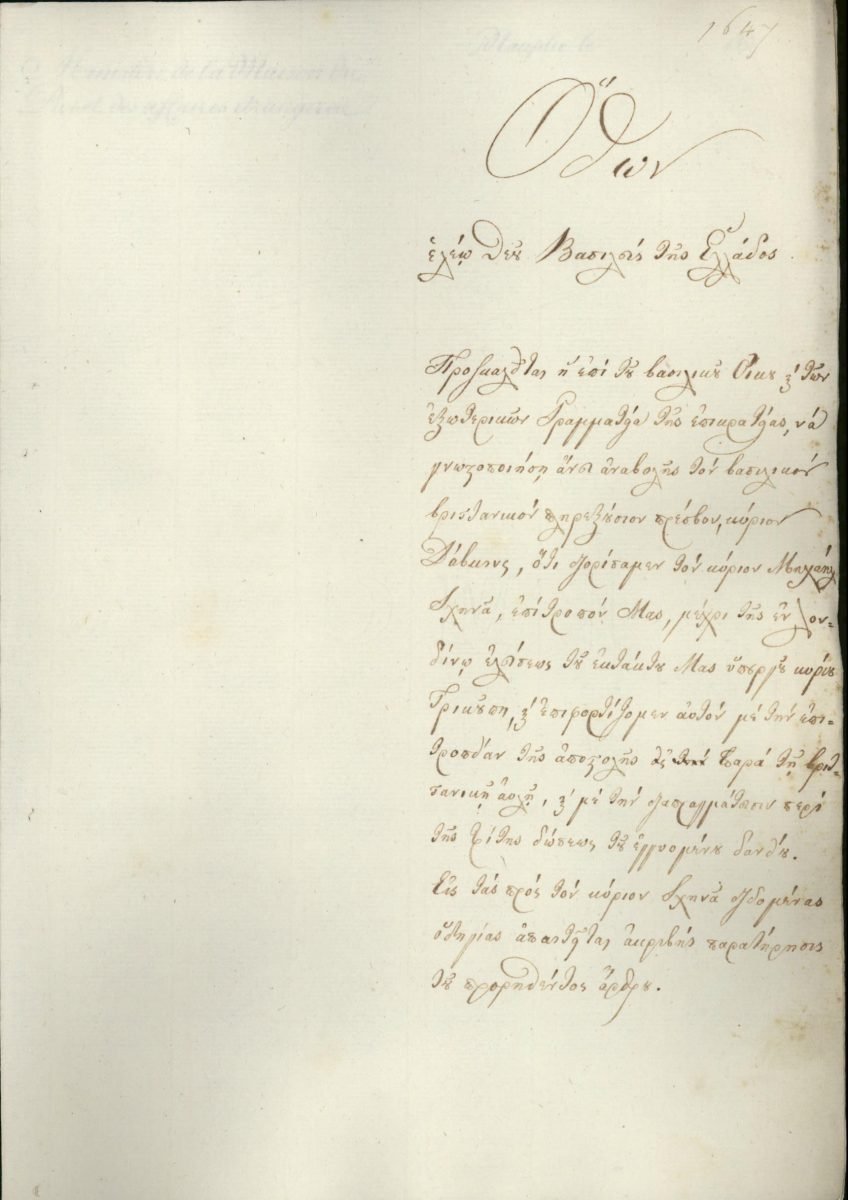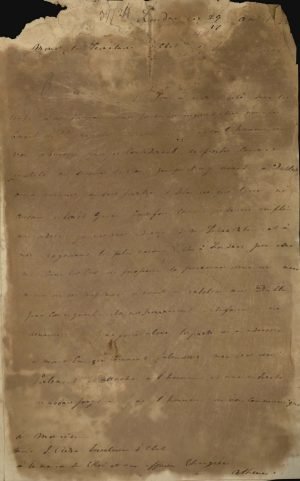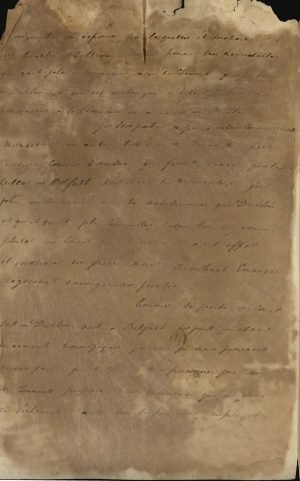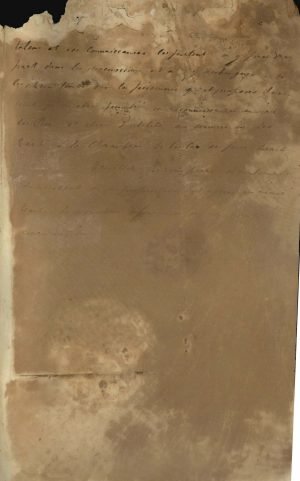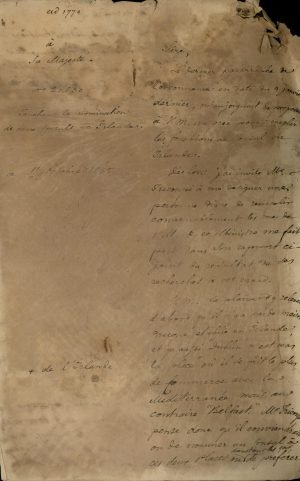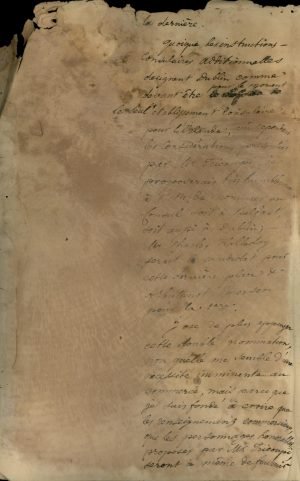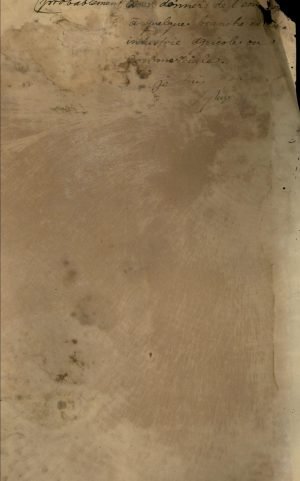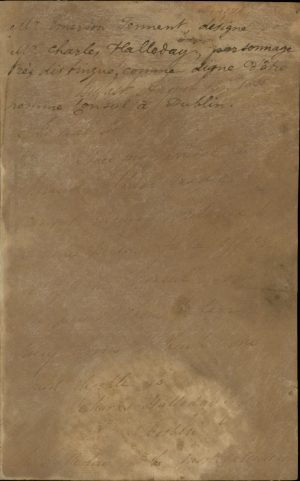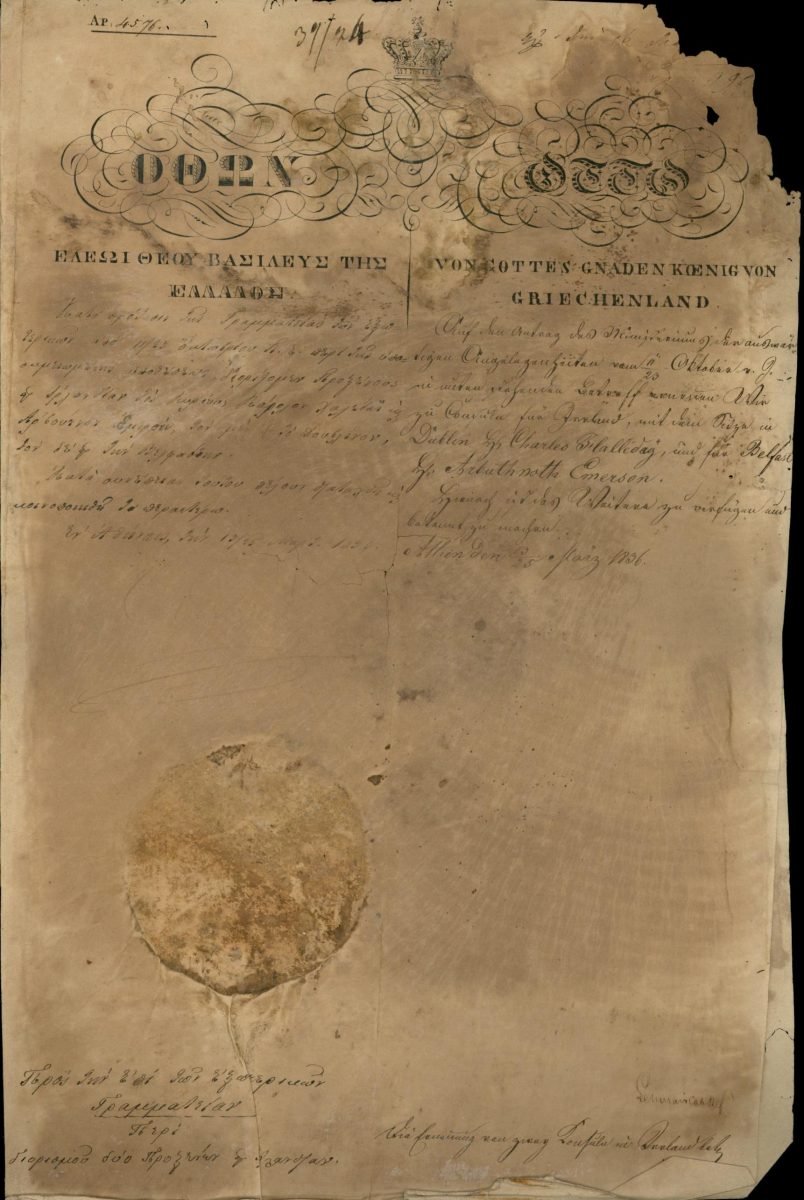Contacts between the United Kingdom and Greek revolutionaries began very early during the Revolution. Many British philhellenes arrived in Greece to voluntarily help in the Struggle for Independence, some of whom had previously served as British Army officers. Furthermore, in February 1824 the Greek Provisional Administration agreed on a loan of nominal amount of £800,000 (of which 59% was disbursed) with a British bank, which could be considered as de facto recognition of the Greek Government. A more explicit recognition was, of course, the signing by the United Kingdom of the Treaty of London in July 1827. The recognition was completed with the accreditation of the first Resident in the autumn of 1828.
[8]20 November 1828. Edward Dawkins requests a hearing from Governor Ioannis Kapodistrias in Poros in order to deliver a letter from the Foreign Secretary of the United Kingdom, appointing him as Resident of the UK in Greece. The following day (9/21 November), the Greek Government informs Dawkins that he will be received by the Governor on the same day. The delivery of this letter constitutes the official establishment of diplomatic relations between the two States.
17[29] November 1828. Letter from Governor of Greece Ioannis Kapodistrias to the British Foreign Secretary expressing his gratitude for the accreditation of E. Dawkins as Resident to the Greek Government, which the Governor describes as “a new act of benefaction to Greece”.
[10]22 September 1828. Letter of accreditation of British Resident E. Dawkins to the Greek Government by British Foreign Secretary George Hamilton-Gordon, Earl of Aberdeen.
1829: The first consular Authorities of the United Kingdom in Greece
30 December 1829 / 11 January 1830. Governor of Greece Ioannis Kapodistrias recognizes George William Crowe as Consul of the United Kingdom in Patras, on the basis of a consular diploma of nomination dated 10 September 1829.
[18]30 November 1829. William Almene is nominated Consular Agent of the UK in Milos by British Resident to the Greek Government E. Dawkins.
1833: The first Greek diplomatic representatives in London
[3]15 October 1833. Letter from British King William IV to King Othon. William expresses his satisfaction for the trip to London of Michael Soutzos, Ambassador of Greece in Paris, in order to deliver a letter of gratitude from the King of Greece for the assistance offered by the British King during the arrival of Othon to Greece. After the United Kingdom, Soutzos conveyed a similar message to the Russian Emperor Nicholas I, while soon afterwards the first Greek Ambassador to the UK, Spyridon Trikoupis, was accredited.
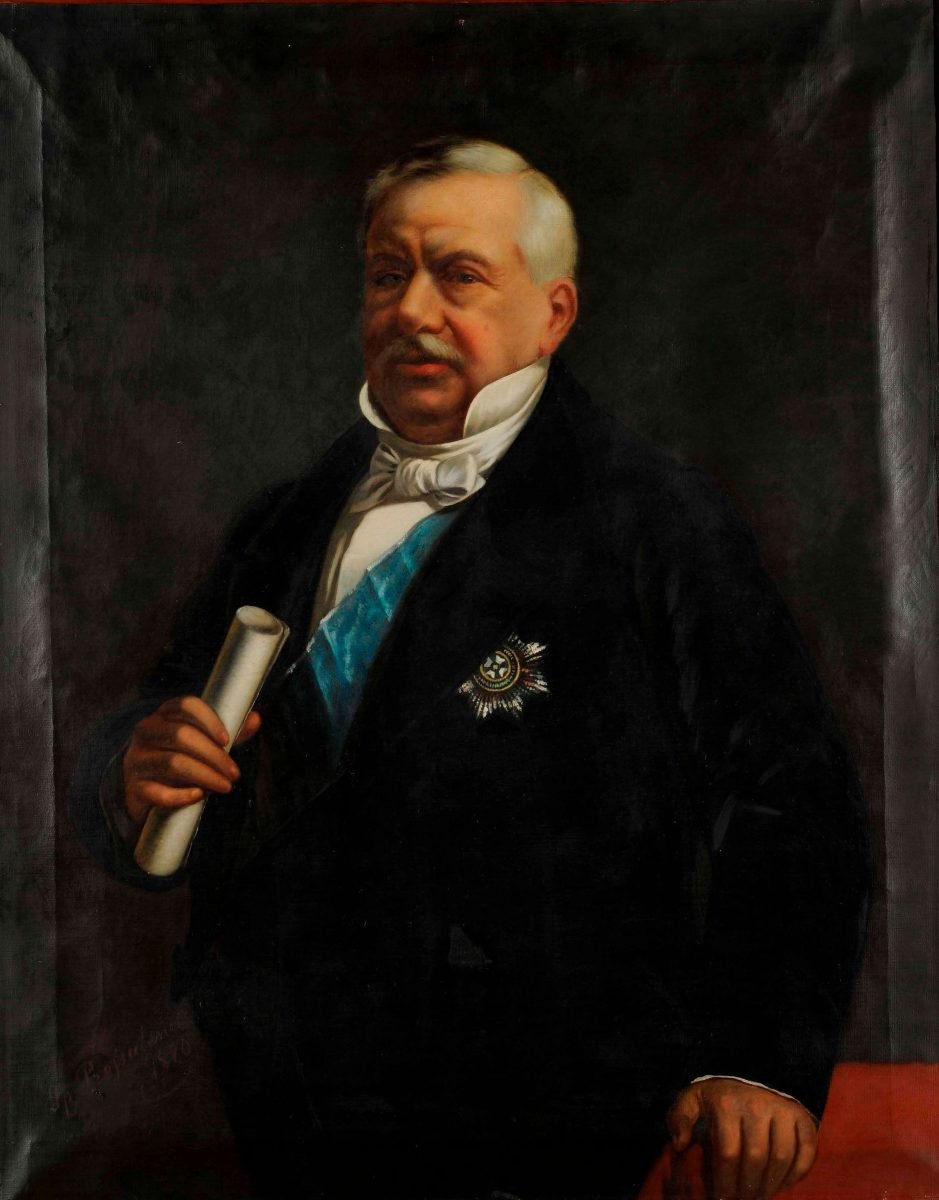
Spyridon Trikoupis (1788-1873)
Oil painting by Sp. Prosalentis
Source: National Historical Museum, Athens
14/26 October 1833. Copy of the letter by which Greek Minister of Foreign Affairs Alexandros Mavrokordatos notifies British Resident in Athens E. Dawkins of the appointment of Spyridon Trikoupis as Ambassador of Greece to London.
4/16 December 1833. Appointment of scholar Michael G. Schinas as Greek Chargé d’ Affaires in the United Kingdom until the arrival of Ambassador Spyridon Trikoupis (and translation in Greek).
The first consular Authorities of Greece in Ireland
17/29 August 1835. Greek Ambassador in London Spyridon Trikoupis recommends the establishment of Greek Consulates in Dublin and Belfast and the appointment of wealthy merchants Charles Halleday (or Halliday) and Arbuthnot Emerson respectively.
11/23 October 1835. Greek Minister of Foreign Affairs Iakovos Rizos-Neroulos recommends to King Othon the establishment of Greek Consulates in Dublin and Belfast, thus agreeing with a previous proposal by the Greek Ambassador in London. He considers that Belfast is the most important centre of trade, but that it is also necessary to establish a consular authority in Dublin. The Minister considers the establishment of these Consulates important, not so much in order to develop trade relations, but to gain expertise and experience from these regions in the field of agriculture and trade.
